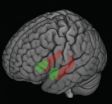(Press-News.org) HAMILTON, ON, June 27, 2014—Developmental psychologist Daphne Maurer has spent more than four decades studying the complexities of the human mind.
As the director of the Visual Development Lab at McMaster University and president of the International Society on Infant Studies, Maurer will present her life's work at the Biennial International Conference on Infant Studies in Berlin July 4th.
Over the course of her career she has established a reputation for building new understanding of one of the most challenging and mysterious aspects of human development: how our senses work.
This work includes 30 years she has spent as an investigator on a longitudinal study following the visual development of infants born with cataracts in both eyes.
"We know that babies' brains are highly plastic, or flexible, when they are born and get tuned to the environment to which they are exposed," explains Maurer.
"So a baby is learning 'my people look like that, my people talk like that, my people eat this kind of food'. The brain begins with an exuberance of connections which are then pruned to match their environment," she says.
Researchers have discovered, however, that babies who experience a period of temporary blindness early in life do not go on to process the same sensory information other infants might. While they undergo corrective surgery in the first months of their lives, these children grow up to have impaired vision. Even missing just the first month or two of vision leads to profound visual deficits that are carried into adulthood.
"We already know adult brains are far less plastic but the challenge is to unlock plasticity when it is needed most, for example when a traumatic brain injury occurs," she explains.
And the remedy, as she has found in related research, might lie in an unlikely source: video games.
Maurer's findings that 'first-person shooter' games can actually improve eyesight in adults born with cataracts made international headlines in 2012 when she discovered study participants who had played a total of 40 hours (10 hours per week) of the first-person shooter game Medal of Honor, showed some improvement in their vision.
"This research is really promising," says Maurer. "We think the game promotes brain plasticity because it forces players to monitor the action from all sides and act on what they see. The results of our work suggest participants can retrain their range of vision and overcome sensory deficiencies."
Maurer's lab is further testing brain plasticity involving adults who have synesthesia, a neurological condition where the senses blend together. In one form, an individual might hear a colour. In another, letters of the alphabet might appear in different colours. For example, the letter 'A' might be red, or the letter 'C' yellow.
Maurer believes that individuals with synesthesia could provide clues about the development of perception and language.
"Studies suggest that the brains of people who have synesthesia remain in a slightly less specialized state because the pruning that happens early on is incomplete. It seems to be the case that babies and toddlers are slightly synesthetic when they start out and I think there is underground synesthesia in all of us," she says.
Maurer's current work is focusing on how to correct sensory deficits in adults by exploiting residual plasticity involving interaction among the senses. That is, can hearing or touch teach vision to decode the world more accurately, as it does in adults without sensory deficits? Or is this implicit learning process also impaired?
INFORMATION:
Editors please note: Daphne Maurer can be reached at the conference by cell at 015756593899 or by email at maurer@mcmaster.ca
For more information on the conference please visit: http://www.isisweb.org/view/0/ISISconference2014.html
For additional information please contact:
Andrew Baulcomb
Public Relations Coordinator
McMaster University
905-525-9140, ext. 23585
baulcomb@mcmaster.ca
Developmental psychologist explains her life's work studying the mysteries of the mind
2014-06-27
ELSE PRESS RELEASES FROM THIS DATE:
Monkeys also believe in winning streaks, study shows
2014-06-27
Humans have a well-documented tendency to see winning and losing streaks in situations that, in fact, are random. But scientists disagree about whether the "hot-hand bias" is a cultural artifact picked up in childhood or a predisposition deeply ingrained in the structure of our cognitive architecture.
Now in the first study in non-human primates of this systematic error in decision making, researchers find that monkeys also share our unfounded belief in winning and losing streaks. The results suggests that the penchant to see patterns that actually don't exist may be ...
EARTH Magazine: Rosetta off to decipher a comet's secrets
2014-06-27
Alexandria, Va. — "Hello World." Upon hearing that brief message, scientists at the European Space Agency (ESA) and followers around the world sent up a collective cheer. Rosetta — the ESA spacecraft currently on a 10-year mission to orbit and land on a comet — awoke in January after a three-year hibernation, and was ready to get to work.
The Rosetta spacecraft launched on March 2, 2004, to study Comet 67P/Churyumov-Gerasimenko. In August, Rosetta will enter the comet's orbit. By November, scientists will plant a lander on the comet, in the hope of learning more about ...
Early life stress can leave lasting impacts on the brain
2014-06-27
MADISON, Wis. — For children, stress can go a long way. A little bit provides a platform for learning, adapting and coping. But a lot of it — chronic, toxic stress like poverty, neglect and physical abuse — can have lasting negative impacts.
A team of University of Wisconsin-Madison researchers recently showed these kinds of stressors, experienced in early life, might be changing the parts of developing children's brains responsible for learning, memory and the processing of stress and emotion. These changes may be tied to negative impacts on behavior, health, employment ...
Are conservatives more obedient and agreeable than their liberal counterparts?
2014-06-27
Over the last few years, we've seen increasing dissent among liberals and conservatives on important issues such as gun control, health care and same-sex marriage. Both sides often have a difficult time reconciling their own views with their opposition, and many times it appears that liberals are unable to band together under a unifying platform. Why do conservatives appear to have an affinity for obeying leadership? And why do conservatives perceive greater consensus among politically like-minded others? Two studies publishing in Personality and Social Psychology Bulletin ...
Extinct undersea volcanoes squashed under Earth's crust cause tsunami earthquakes, according to new research
2014-06-27
New research has revealed the causes and warning signs of rare tsunami earthquakes, which may lead to improved detection measures.
Tsunami earthquakes happen at relatively shallow depths in the ocean and are small in terms of their magnitude. However, they create very large tsunamis, with some earthquakes that only measure 5.6 on the Richter scale generating waves that reach up to ten metres when they hit the shore.
A global network of seismometers enables researchers to detect even the smallest earthquakes. However, the challenge has been to determine which small ...
Climate change and the ecology of fear
2014-06-27
Climate change is predicted to have major impacts on the many species that call our rocky shorelines home. Indeed, species living in these intertidal habitats, which spend half their day exposed to air and the other half submerged by water, may be subjected to a double whammy as both air and water temperatures rise. Given the reliance of human society on nearshore coastal ecosystems, it is critical that we better understand how climate change will affect them.
In a recent study published in Global Change Biology, Northeastern University professor Geoffrey C. Trussell, ...
New report evaluates progress of comprehensive everglades restoration plan
2014-06-27
WASHINGTON – Although planning for Everglades restoration projects has advanced considerably over the past two years, financial, procedural, and policy constraints have impeded project implementation, says a new congressionally mandated report from the National Research Council. Timely authorization, adequate funding levels, and creative policy and implementation strategies are needed to achieve restoration benefits and to expedite implementation of the Central Everglades Planning Project. Climate change and the invasion of nonnative plant and animal species further challenge ...
USAMRIID research sheds light on how deadly lassa virus infects cells
2014-06-27
Scientists have discovered that the Lassa virus, which is endemic to West Africa, uses an unexpected two-step process to enter cells. The results, published in today's edition of the journal Science, suggest that the mechanism by which Lassa virus causes infection is more complicated than previously known.
An international team of scientists from the Netherlands Cancer Institute, Harvard Medical School, the University of Kiel in Germany, and the U.S. Army Medical Research Institute of Infectious Diseases (USAMRIID) collaborated on the study, which could lead to new approaches ...
AJMC publishes results showing big data analytics can predict risk of metabolic syndrome
2014-06-27
CAMBRIDGE, Mass. and HARTFORD, Conn. – June 27, 2014 – Research published today in the American Journal of Managed Care demonstrates that analysis of patient records using state-of-the-art data analytics can predict future risk of metabolic syndrome. More than a third of the U.S. population has metabolic syndrome, a condition that can lead to chronic heart disease, stroke and diabetes. These conditions combine to account for almost 20 percent of overall health care costs in the U.S. The study was conducted by Aetna (NYSE: AET) and GNS Healthcare Inc. (GNS), a leading provider ...
Prevention incentives
2014-06-27
A spoonful of sugar helps the medicine go down—and so do movie tickets, cell phone minutes and discounts on airline flights.
A private South African health plan increased patient use of preventive care such as mammograms and influenza vaccine with a program that incentivized healthy behavior using discounts on retail goods and travel. The study, which was led by researchers at Harvard Medical School and the RAND Corporation, was published today in The American Journal of Managed Care.
"Even though most people know that preventive care is important, too few people take ...


